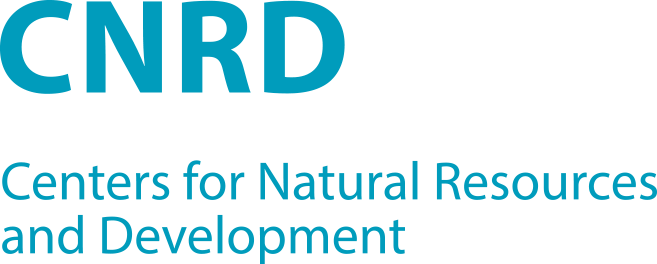Education
CNRD aspires to create a worldwide network of postgraduate courses related to natural resources management and development with an interdisciplinary and intercultural orientation. The teaching capacities of the members of CNRD are strengthened through individual and didactic staff support and curriculum development workshops. Joint development of teaching material and e-learning modules on the four main CNRD topics is supported by CNRD. All modules, materials, and media developed are provided to all CNRD partners through a Shared Educational Resource Repository (SERR). Lecturer exchange is possible between all universities involved.
Curricula Development
Joint curricula development is a main pillar of CNRD. Throughout these joint efforts concepts, materials, and content for up-to-date higher education is produced. All partners, their students and beyond are benefiting from pooling the expertise and cultural diversity of the contributing institutions. Didactics are important in contemporary higher education curricula, therefore CNRD is fostering the improvement of the learning and teaching environment at the partner universities. This is done through curricula update and review, teaching material development, and training of lecturers. In all of these activities CNRD is following a learner-centered approach and is promoting the application of modern communication and information technology-based solutions.
So far, the cluster has produced various outstanding concepts and products and is currently active in several new projects. For example, the network developed a master’s module on “Disasters, Environment Risk Reduction (Eco-DRR)” which is taught at more than 40 universities worldwide. From this this module a massive open online course (MOOC) on “Disasters and Ecosystems: Resilience in a Changing Climate” was developed in 2014, with more than 12,000 participants from around the globe. Due to the success of the MOOC, an updated version was prepared, and the leadership track was published in 2017. This was followed by the launch of the expert track in 2018, which includes 15 more units of in-depth material. This MOOC is hosted on the Asian Disaster Preparedness Center (ADPC) platform.
The network provided inputs to the development of a master’s program on disaster management in Nepal and is constantly developing teaching materials for modules in “Integrated Water Resources Management”.
Over the course of time, two core areas have emerged in which the cooperation of the CNRD partners has been particularly successful. The first is the implementation of a joint Interdisciplinary Master’s Program on Resource Efficient Cities (IMaREC) → and a consortium of CNRD partners who are striving to use synergies in relation to the joint Master’s Program on Integrated Water Resources Management (IWRM) →
Joint Student Project (JSP)
Intercultural and interdisciplinary dialogues between lecturers and students play a crucial role in building up expertise and creating new knowledge in the field of natural resources management.
One way in which CNRD addresses these needs is the Joint Student Project (JSP) format, which brings together students and their supervisors from at least three different CNRD partner universities to work together on a shared topic at one of the partner universities. The format is embedded in the curricula of all participating universities. Students prepare and wrap up the JSP meeting phase at their home university and have their achievements awarded as coursework.
During the JSP meeting phase, students receive input from an international team of lecturers, discuss with their international peers, and organize interdisciplinary and intercultural student teams to carry out largely independent, research-based field work. Throughout this process, students have the opportunity to gain an insight into the site-specific challenges of natural resources management and understand more about social, environmental, and economic factors. This allows the teams to formulate their own preliminary solutions and approaches.
The JSP enhances the academic profile of the lecturers and students involved and provides an attractive teaching and learning environment at the various partner universities.
Lecturer Exchange
CNRD supports the exchange of lecturers between CNRD partner universities. The guest lectures should contribute to the curricular content of the CNRD network universities. Lecturer stays of varying duration can be combined with either curriculum or learning unit development or CNRD-related research activities such as preparing papers or proposals or joint supervision of master’s students.



